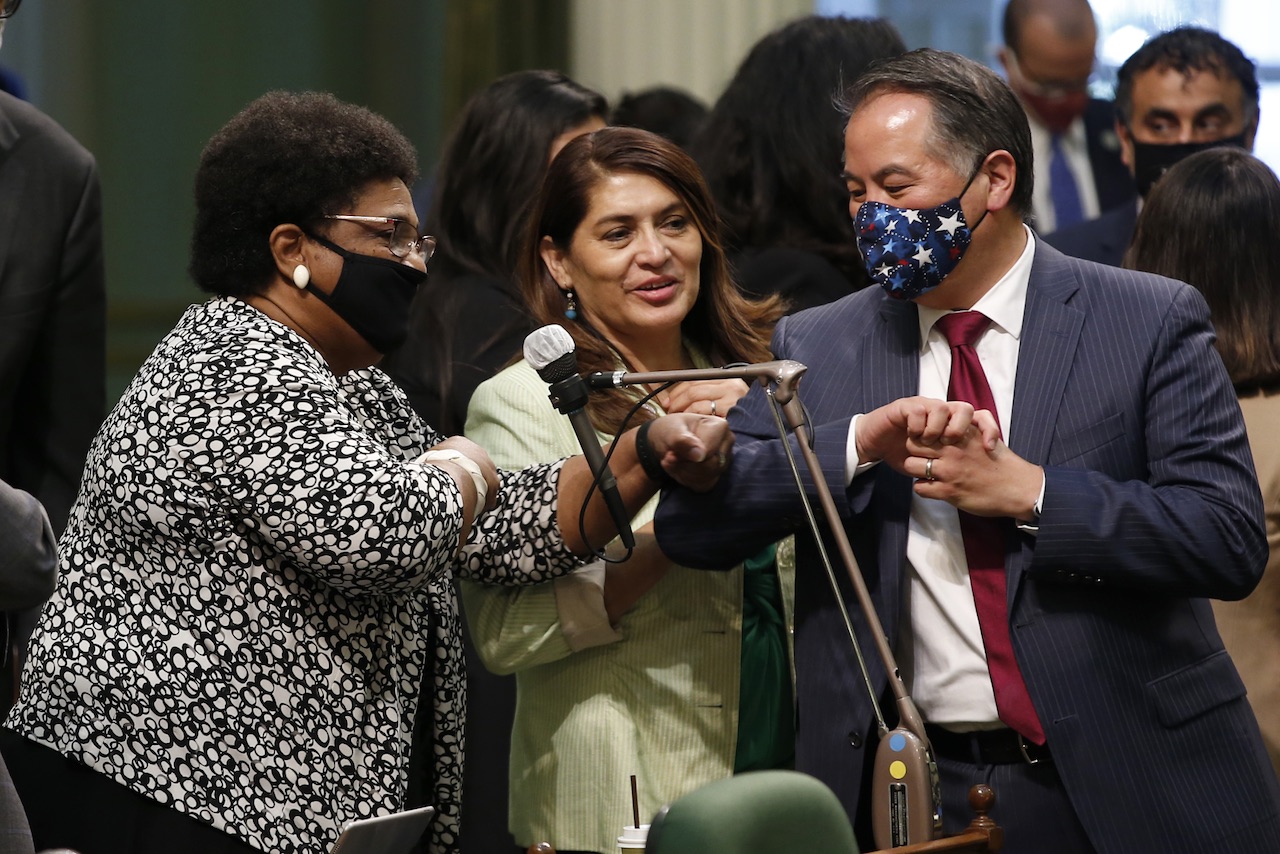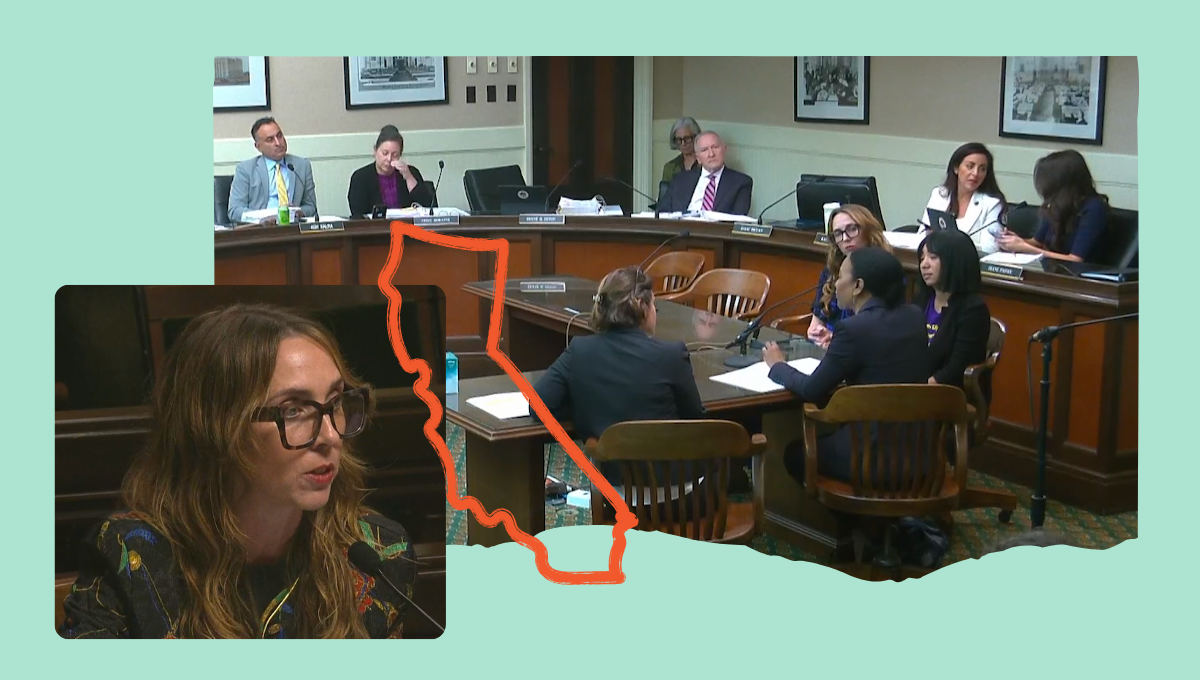Prop 16: What You Need to Know

Election Day is just around the corner. While the presidential race is drawing the most attention, ballot measures and candidates in local and state races have the potential to drastically reshape our communities, amidst and after the COVID-19 pandemic.
That’s why we’ve launched this blog series, to break down the key issues on the statewide and local ballots.
Check out our elections page for articles on the other statewide and local measures.
What is Proposition 16?
Proposition 16 would once again allow equal opportunity programs like affirmative action in California by repealing the ban put in place by Proposition 209. The 1996 measure banned state and local governments from discriminating or giving preferential treatment on the basis of race, ethnicity, national origin, color, or sex. The prohibition on preferential treatment meant that public institutions could no longer practice affirmative action, which is the practice of specifically considering those identities when making employment, college admission, and contracting decisions. Proposition 16 would allow the state and local governments along with the University of California and Cal State systems to take those factors into consideration, but it would not institute quotas on the basis of race, gender, or other identities.
Proposition 16 needs a 50% plus 1 vote majority to pass.
Why does it matter?
Prop 16 is important because it would undo Proposition 209, part of a collection of racist policy decisions that continue to hinder efforts to make California a more equitable state. Many of these policies were implemented while non-Latinx white people were still a majority of California’s population, but have been difficult to repeal even now that Latinx Californians have surpassed white people as the largest racial or ethnic group in the state. As this summer’s uprisings against police violence and racial injustice have made clear, we need to take active steps to remedy the ugly history of racist policy. Passing Prop 16 is an important step in this direction, clearing the path for programs that consider the effects of institutional racial, ethnic, and gender-based discrimination when making hiring, contracting, and college admission decisions.
The passage of Proposition 209 in 1996 reduced the diversity of the University of California student body, cost women and people of color state contracting opportunities, and limited the state’s ability to address Latinx underrepresentation in public employment. Research by the University of California shows that Proposition 209 led to a 12 percent decline in the enrollment of Black, Latinx, and Native American students. The Equal Justice Society estimates that Proposition 209 cost women and people of color up to $1 billion in state contracts. Latinx Californians have long been underrepresented in public employment. Targeted affirmative action programs that consider race and ethnicity may be able to reduce this disparity but are currently banned by Proposition 209. Passing Proposition 16 will hopefully reverse the harm done to student body diversity and government contractors and open the door to programs that can increase Latinx representation in public employment.
Who supports Proposition 16 and what’s their argument?
Supporters of Proposition 16 argue that the measure is an important step in bringing California into alignment with other states by providing an equal opportunity for education, work, and contracting. They argue that 42 states currently consider gender, race, and ethnicity in admissions decisions, awarding contracts, and public employment, and the repeal of Proposition 209 is needed to add California to that list.
The supporters point out research that shows college admissions tests are biased based on parental income and education, which is also biased by race and ethnicity. They also argue that studies show that admissions tests are weak predictors of college success so there isn’t a strong reason to heavily rely on them given the racial and ethnic biases.
Supporters address claims of potential harm against Asian and Pacific Islanders by showing that admissions for Asian and Pacific Islander students declined following the passage of Proposition 209 and arguing that these students also stand to benefit from policies that consider race and ethnicity. They also cite research showing that Asian and Pacific Islanders earn more from government contracts in areas that have legalized affirmative action.
A number of elected officials, labor unions, and community organizations have endorsed Proposition 16. The elected officials include Governor Gavin Newsom, Senator and Vice Presidential candidate Kamala Harris, as well as the mayors of San Francisco, Oakland, Los Angeles, and Stockton. The California Labor Federation and community groups like the Alliance of Californians for Community Empowerment (ACCE) have also endorsed Proposition 16. A full list of endorsements can be found here.
As of publication, the supporters have raised about $9 million. The top 3 funders in support of Proposition 16 are Quinn Delaney, Kaiser Permanente, and Patricia Quillin. The latest contribution data can be found here.
Who opposes Proposition 16 and what’s their argument?
Opponents of Proposition 16 argue that affirmative action programs legalized by the measure will encourage discrimination on the basis of gender, race, ethnicity, and other identities. They are particularly concerned about individuals who may not be in an underrepresented group, but who face disadvantages along other dimensions. In their view, affirmative action programs would increase the barriers to opportunities for those individuals. Proposition 16 opponents prefer the gender, race, and ethnicity-agnostic programs that exist today.
Prominent opponents of Proposition 16 include Gail Heriot, Ward Connerly, and Michelle Steel.
As of publication, the opposition has raised less than $1 million. There are no registered funders in opposition to Proposition 16. The latest contribution data can be found here.
TechEquity Votes YES On Proposition 16
We are proud to support Proposition 16. We at TechEquity recognize that there is a several hundred year-long history of ongoing abuse and discrimination on the basis of race, ethnicity, nation of origin, color, and gender in our state and country. To overcome the present-day disparities caused by that history requires affirmative programs that take into consideration the effects of race, ethnicity, gender, and other identities.
Policies that are “blind” to those identities will never be sufficient to eliminate the inequities in our society because they will never make people whole for the harms they’ve suffered on the basis of the identities they hold. Passing Proposition 16 and legalizing affirmative action programs is an important step on the way to an equitable California. It will improve the diversity of our college student bodies, bring fairness to state contracting, and allow for efforts to build a more inclusive public workforce.
These changes will also lead to a more equitable tech-driven economy. Education and the so-called “pipeline” are not the main reasons for the lack of diversity in the tech industry, but they do contribute to the problem. While we firmly believe that tech needs to broaden its image of an ideal hire, we also recognize that credentials are likely to remain an important factor in the hiring process. By expanding access to the UC system, more people with identities that are marginalized will hold those highly-valued degrees and we expect that will play a part in improving racial equity in tech.
We say vote Yes on Proposition 16!





